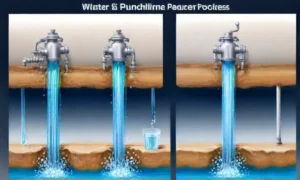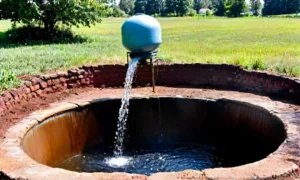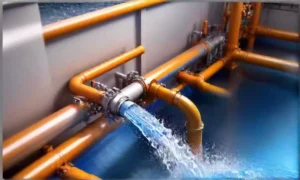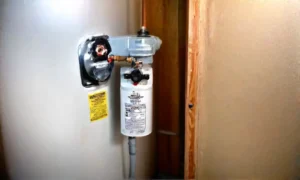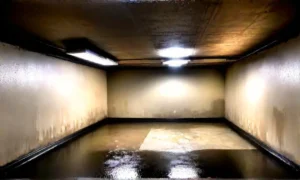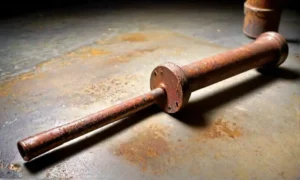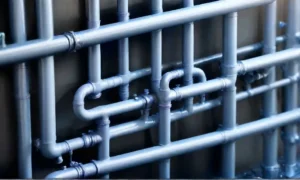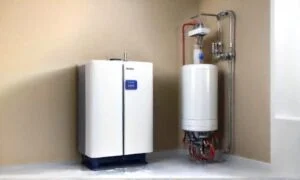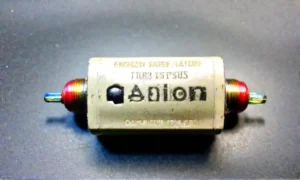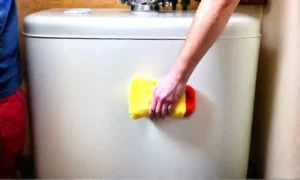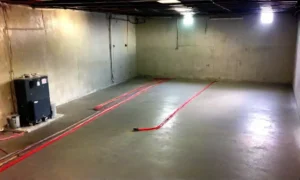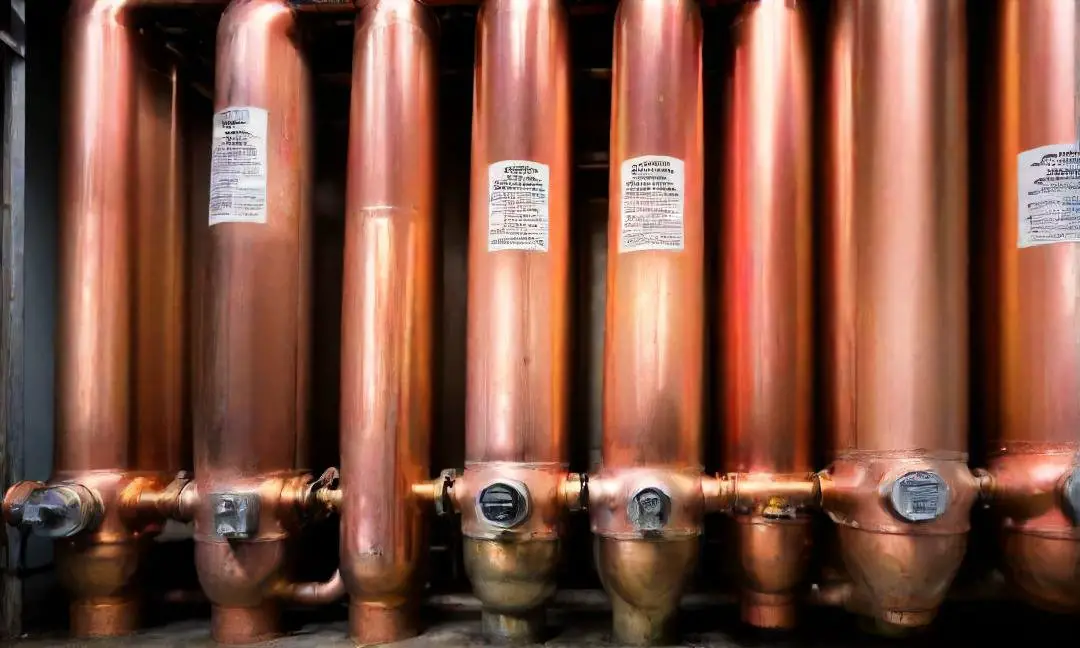
The Benefits of Using Copper in Hot Water Systems
Superior Heat Conductivity
Copper’s exceptional ability to conduct heat efficiently ensures that your hot water system heats up quickly and effectively, providing you with instant access to hot water whenever needed. This feature is especially beneficial during cold winter mornings when a warm shower can be a lifesaver.
Corrosion Resistance
One of the standout advantages of copper in hot water systems is its remarkable resistance to corrosion. This means that your system is less likely to develop rust or other forms of deterioration over time, ensuring a longer lifespan for your water heater and reducing the need for frequent repairs.
Longevity and Durability
Copper’s durability makes it a reliable choice for hot water systems, offering long-lasting performance that can withstand the rigors of daily use. By investing in a copper-based system, you can enjoy peace of mind knowing that your water heater is built to last for years to come.
Energy Efficiency
With its superior heat conductivity, copper helps to optimize the energy efficiency of your hot water system. This means that your water heater can operate more effectively, resulting in lower energy bills and reduced environmental impact. By choosing copper, you’re not only saving money but also contributing to a greener future.
Reduced Bacterial Growth
Copper’s antimicrobial properties play a crucial role in reducing bacterial growth within your hot water system. This feature helps to maintain water quality and hygiene, ensuring that the water you use for daily activities remains clean and safe for you and your family.
Installation Tips for Copper Hot Water Systems
Proper Soldering Techniques
Begin with ensuring your soldering iron is at the right temperature. Remember, patience is key; rushing can lead to leaks later on. Clean the copper pipes thoroughly before applying flux and solder. Always inspect your solder joints for any imperfections to prevent future issues.
Adequate Insulation
Think of insulation as a cozy blanket for your pipes. It helps maintain water temperature and prevents heat loss. Don’t forget to insulate both hot and cold water pipes to maximize efficiency. A well-insulated system not only saves energy but also extends the lifespan of your hot water system.
Regular Maintenance Checks
Just like a well-oiled machine, your hot water system needs regular check-ups. Keep an eye out for any signs of corrosion or rust on your copper pipes. Check for loose fittings and ensure all connections are secure. Remember, a stitch in time saves nine!
Pressure Testing
Pressure testing is like giving your hot water system a stress test. It helps identify any weak points in the system before they turn into major leaks. Be sure to follow safety guidelines when conducting pressure tests and always double-check your results to ensure accuracy.
Leak Detection Methods
Leaks can be sneaky, so it’s essential to know how to detect them early. Keep an eye out for water stains, mold, or musty odors near your hot water system. Utilize a water leak detector for added peace of mind. Remember, a watched pot never boils, but a watched pipe never leaks!
Comparing Copper vs. Other Materials for Hot Water Systems
Copper vs. PVC Piping
Copper, a stalwart in hot water systems, faces off against PVC piping, a lightweight contender. In the course of copper boasts durability and longevity, PVC brings affordability and ease of installation to the ring. Consider your priorities: longevity or cost-effectiveness?
Copper vs. Stainless Steel
In this showdown, copper’s excellent heat conductivity goes head-to-head with stainless steel’s corrosion resistance. Are you leaning towards efficient heat transfer with copper or long-lasting durability with stainless steel for your hot water system?
Copper vs. PEX Tubing
The battle between traditional copper and modern PEX tubing heats up. Copper’s reliability faces off against PEX’s flexibility and ease of installation. Are you team copper, valuing proven performance, or team PEX, embracing innovation and adaptability?
Copper vs. Galvanized Steel
Copper’s elegance clashes with the ruggedness of galvanized steel in the realm of hot water systems. In the course of copper exudes sophistication, galvanized steel offers robustness. Which aspect??style or sturdiness??holds more weight in your decision-making process?
Copper vs. CPVC
The classic copper competes with the modern CPVC in the realm of hot water systems. Copper’s timeless reliability contends with CPVC’s chemical resistance and ease of installation. Are you drawn to the traditional charm of copper or the contemporary advantages of CPVC for your hot water setup?
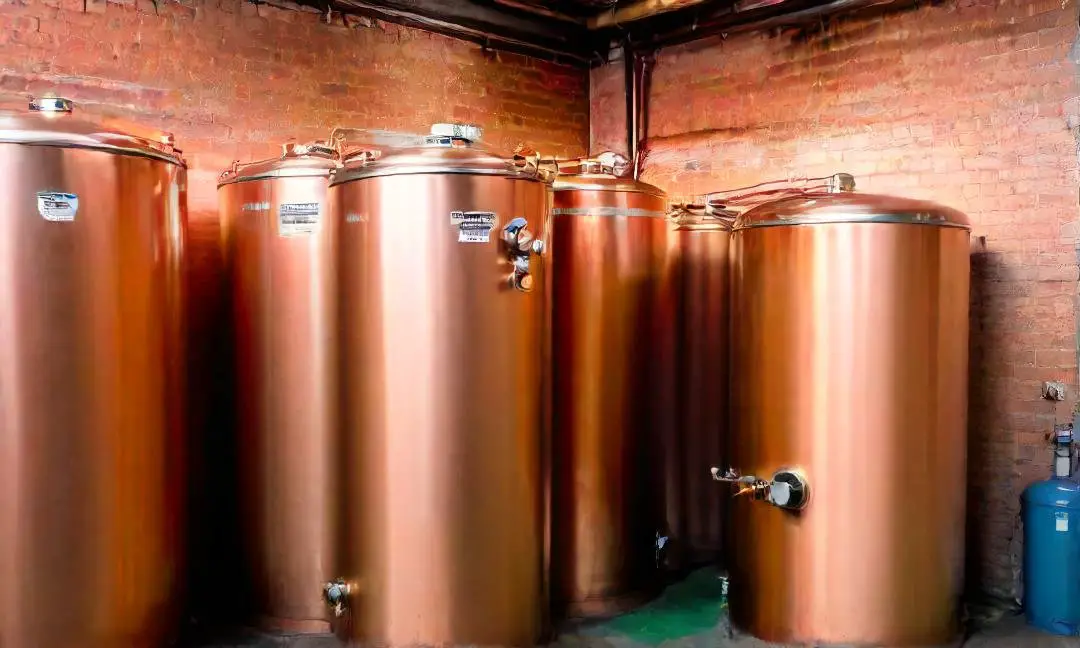
Environmental Impact of Copper Hot Water Systems
Recyclability of Copper
Copper, a versatile metal, stands out for its recyclability. Pertaining to hot water systems, utilizing copper components ensures that at the end of their lifecycle, the material can be recycled and repurposed. This not only reduces waste but also promotes a sustainable approach to resource management.
Energy Efficiency Benefits
Embracing copper in hot water systems brings forth significant energy efficiency benefits. The excellent thermal conductivity of copper allows for quick heat transfer, resulting in reduced energy consumption. This means lower utility bills and a more eco-friendly operation overall.
Reduced Carbon Footprint
By enmeshing copper into hot water systems, one can contribute to diminishing their carbon footprint. The energy-efficient nature of copper translates to lower greenhouse gas emissions during operation. This environmentally conscious choice aligns with the global push towards sustainable living.
Sustainable Manufacturing Practices
Choosing copper for hot water systems also underscores the importance of sustainable manufacturing practices. Copper production involves minimal environmental impact compared to other materials. Opting for copper supports responsible sourcing and manufacturing processes, paving the way for a greener future.
Long-Term Environmental Benefits
Touching on the long-term environmental impact, copper hot water systems shine bright. The durability and longevity of copper components mean fewer replacements over time, reducing overall waste generation. This longevity factor contributes significantly to the environmental sustainability of hot water systems.
Troubleshooting Common Issues with Copper Hot Water Systems
Identifying and Fixing Leaks
Leaky pipes can be a real headache, but fear not! To tackle this issue head-on, start by visually inspecting all visible pipes for any signs of moisture. Once you’ve located the leak, shut off the water supply and use a pipe repair clamp or epoxy putty to seal it up tight. Remember, a stitch in time saves nine!
Addressing Water Discoloration
If your hot water is looking more like a murky pond than a refreshing stream, the culprit may be copper corrosion. Combat this by flushing your system to get rid of any sediment buildup. You can also install a water filter to keep your water crystal clear and free from discoloration. Remember, clear water equals a clear mind!
Dealing with Low Water Pressure
Low water pressure can put a damper on your day, but fret not! Check for any clogs in your pipes or faucets that may be restricting water flow. You can also adjust your pressure regulator to ensure optimal water pressure throughout your system. Remember, a little pressure can make a big difference!
Preventing Corrosion Build-Up
Corrosion is the enemy of any water system, but you can fight back! Consider installing a sacrificial anode rod in your water heater to attract corrosive elements and protect your copper pipes. Regular maintenance and inspections can also help prevent corrosion build-up. Remember, a little prevention goes a long way!
Handling Temperature Fluctuations
Hot one minute, cold the next ?? temperature fluctuations can be frustrating. To maintain a consistent temperature, check your thermostat settings and ensure your water heater is functioning correctly. Insulating your pipes can also help regulate water temperature and reduce fluctuations. Remember, consistency is key for a cozy shower experience!
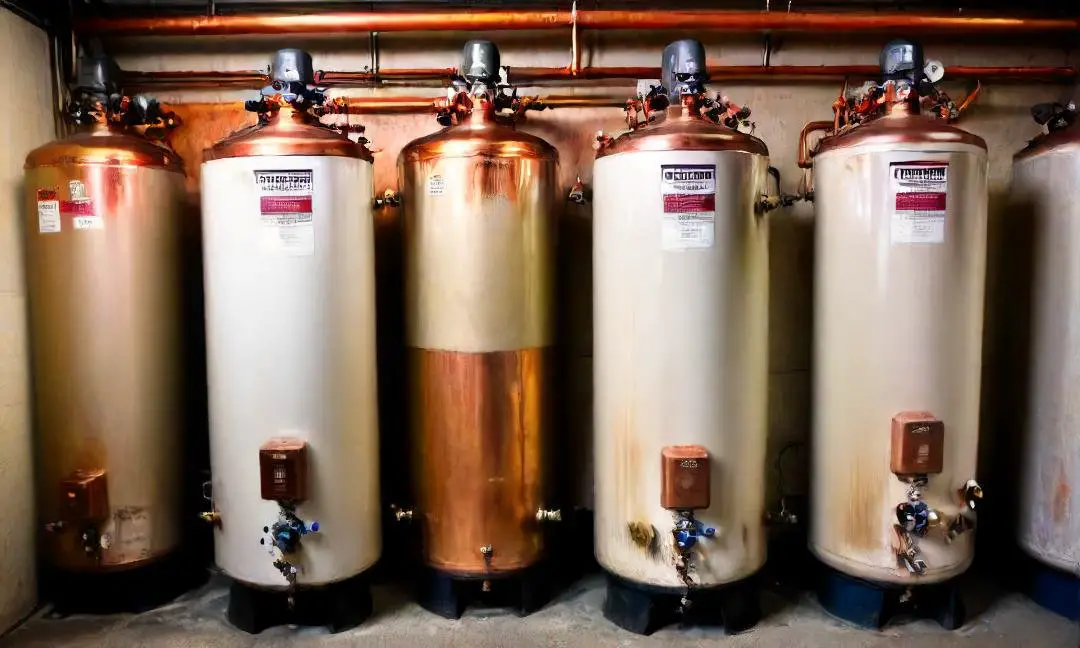
Cost Considerations of Installing Copper Hot Water Systems
Initial Investment vs. Long-Term Savings
At the outset, ponder the upfront expense of installing a copper hot water system. Whilst it may seem steep initially, remember the long-term savings it can bring. Like planting a tree, the investment grows over time.
Comparing Installation Costs with Other Materials
When weighing the costs, don’t forget to compare copper with other materials. It’s like choosing between a sports car and a reliable sedan – both have their perks, but copper’s durability and efficiency stand out in the long run.
Return on Investment Analysis
Analyze the return on investment carefully. Think of it as a puzzle – with copper, each piece fits perfectly to ensure a return that not only covers the initial cost but also adds value to your property like a hidden gem waiting to be discovered.
Budgeting for Maintenance and Repairs
Consider budgeting for maintenance and repairs. It’s like caring for a prized possession – regular upkeep ensures longevity and efficiency, saving you from unexpected breakdowns. A stitch in time saves nine!
Financing Options for Copper System Upgrades
